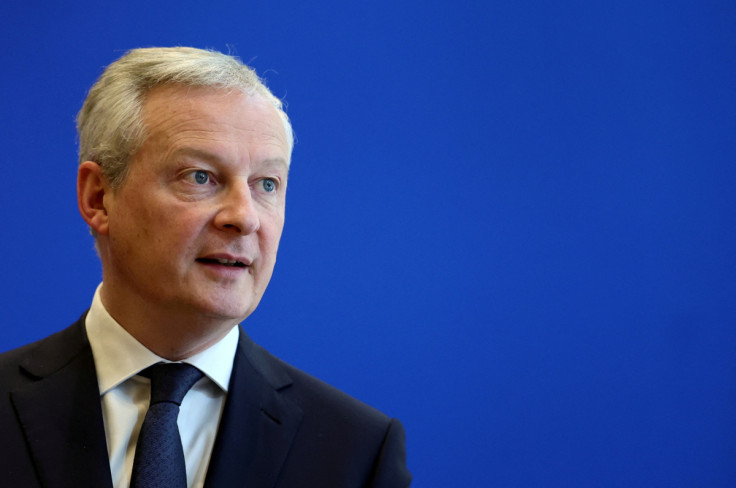France, Germany test water on U.S. green subsidies
Germany's Economy Minister Robert Habeck and French Finance Minister Bruno Le Maire will head to Washington next week to press concerns about U.S.

Germany's Economy Minister Robert Habeck and French Finance Minister Bruno Le Maire will head to Washington next week to press concerns about U.S. climate subsidies and urge a favourable treatment of European businesses.
While European leaders welcome the new impetus towards green energy transition given by the Biden administration's so-called Inflation Reduction Act, they also fear that the $369 billion of subsidies largely targeting North America-based manufacturers could lure companies away from Europe.
Some in Europe argue the subsidies breach World Trade Organization rules, but there is no appetite for a trade war with the United States and a recognition that Europe's best hope lies in influencing how the scheme is applied in practice.
"From the point of view of German industry, it is important the implementation guidelines of the U.S. authorities now avoid discrimination as far as possible," said Tanja Goenner, general director of Germany' BDI industry association.
Habeck and Le Maire are due to meet U.S. counterparts on Tuesday, two days before an EU summit where leaders will study plans to boost state aid and other moves to allow Europe to compete as a hub for electric vehicles and other green products.
"The special summit in February should send the signal that the European response to the U.S. IRA will be a European IRA, comparable in instruments, scope and measures," a Volkswagen spokesperson said.
SEEKING COMPARABLE TREATMENT
The discussion around IRA in Germany focuses on potential disadvantages for a local automotive industry that has been the backbone of Germany's exporting success for decades but which now faces an unprecedented challenge from the shift away from fossil fuels.
Under IRA, new electric vehicle tax credits apply to those with final assembly as well as key inputs made in North America, which includes Canada and Mexico - countries that have free trade pacts with the United States.
One focus of the Franco-German trip is to seek treatment for Europe comparable to that for Mexico and Canada, a senior EU official said.
"If Ministers Habeck and Le Maire succeeded in doing that, it would be a great success," Mercedes-Benz's head of external affairs said.
The U.S. Treasury Department said in December that electric vehicles leased by consumers could qualify for up to $7,500 in commercial clean vehicle tax credits, a decision that would make those assembled outside North America eligible. One goal of the Washington visit is to confirm that is indeed the case.
Still, while the potential for leased European vehicles to be covered by the subsidy is welcome, it would only apply to a portion of European vehicle exports, said Hildegard Mueller, president of Germany's VDA auto association.
Experts estimate that about half of the German electric vehicles registered in the United States are leased.
While the scale of the U.S. subsidies has attracted most attention, the EU has large potential resources of its own. A German government source said an initial analysis showed they could even be comparable to those available under IRA.
Chancellor Olaf Scholz said last month almost 180 billion euros would be available for 2023-2026 under the German climate and transformation fund, a supplementary budget to push green investments, while the IRA's $369 billion covers 10 years.
THE REAL PROBLEM
"The amounts of subsidies in Europe are in line or even more than those in the United States, that is not the problem," said one senior European Union official.
"The real problems are the incentives to make firms move production to the United States," said the official, referring to the local content requirements.
Yet, Europe's carmakers insist there is a risk that business will be tempted to shift towards the United States as the U.S. provisions combine with other production factors to make Europe look less attractive.
"Due to the IRA and the very high electricity and energy prices, especially in Germany, Europe is becoming less and less competitive," a spokesperson for Volkswagen said.
To ensure Europe can compete with the United States, the European Commission on Wednesday proposed measures including loosening EU state aid rules and repurposing existing EU funds.
VDA's Mueller said it was crucial the "EU Green Deal Industrial Plan" could be "implemented quickly and unbureaucratically."
Copyright Thomson Reuters. All rights reserved.





















